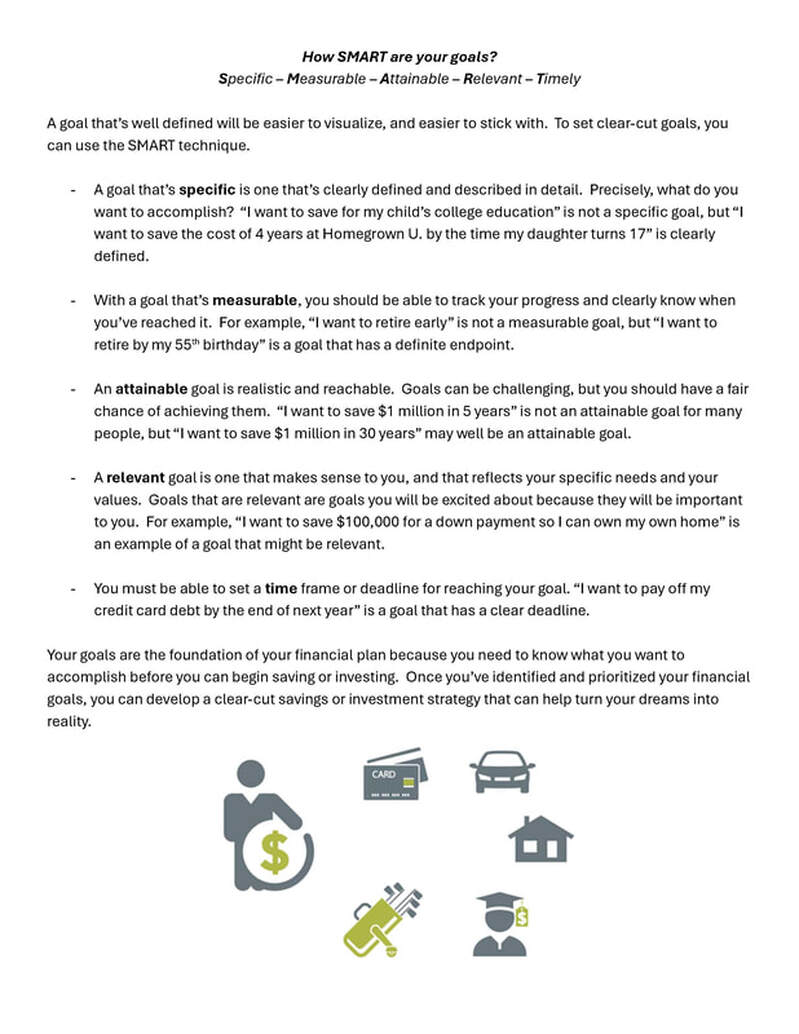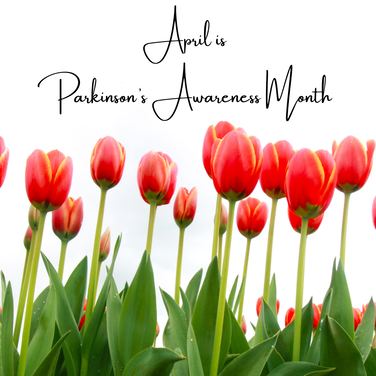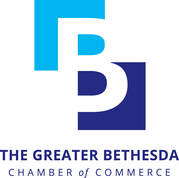This is... Community Health Improvement Week, CPR & AED Awareness Week and Men's Health Month6/4/2024 Guest Blog by: Suburban Hospital For 80 years, Suburban Hospital has prioritized community building and promoted health equity. We continue to advance solutions to address unmet needs aiming to keep all individuals well, safe, and empowered to live, work, and play in Montgomery County. Health improvement is often obstructed by systematic structural barriers such as access to quality health care, economic stability, and social context. Our focus remains on developing new strategies to address emerging barriers. The month of June brings attention to a few key health topics. To kick the month off, we recognize CPR and Automated External Defibrillator (AED) Awareness Week followed by Community Health Improvement (CHI) Week. Additionally, June is Men’s Health Month. Community Health Improvement (CHI) Week CHI Week 2024 runs from June 10th through June 14th and is a time to highlight partnerships and programs that aim to improve the health and well-being of individuals and communities and advance health equity to build stronger communities. Additionally, it is an opportunity for each of us to reflect and conduct a self-evaluation to see if there are behavioral changes that we can make to improve our health. Conducting the best possible self-care allows us to support our community. Suburban Hospital is committed to community improvement and encourages you to take action to improving your personal health and support activities that improve community health as a whole. Two ways to make an impact are to participate in available training opportunities such as CPR and AED training or to attend the 20th Annual Men’s Health Symposium, both highlighted below. CPR and AED Awareness Every year, the first week of June highlights the importance of CPR and AED awareness by spotlighting how lives can be saved if more Americans are educated on CPR and use of an AED. During cardiac arrest, a person’s heart stops beating, stopping blood flow to the brain and other vital organs. Approximately 70% of out-of-hospital cardiac arrests occur in the home, making every second of response time count in the person’s survival. You can play an active role in potentially saving a life by getting CPR and AED trained. Suburban Hospital is conducting Heartsaver AED/CPR certification training on June 18th. Please see details here: https://heartsaver-aed-pr.events.suburbanhospital.org/. For a comprehensive list of all available Heartsaver courses offered by the American Heart Association, please click here: https://cpr.heart.org/en/cpr-courses-and-kits/heartsaver. Your emergency preparedness will make a lasting impact on our community. Men’s Health Month In comparison to women, men in the U.S. are less likely to use preventive health services. As a result, they experience multiple health disparities such as poorer cardiovascular health, higher incidence of cancer, and lower life-expectancy by six years (Wippold et al., 2024). However, there are ways that men can take an active role in safeguarding their personal health and lower the risk of chronic disease. A first step is to build a strong relationship with your physician. This can be accomplished by keeping all medical appointments, addressing key concerns, being honest, maintaining open communication, and adhering to your physician’s instructions. Another step to achieve this goal is through health screenings. Both blood pressure and skin cancer screenings are available in Montgomery County to the public for free. Additionally, you are encouraged to attend public health forums such as the 20th Annual Men’s Health Symposium “Empowering Your Cardiovascular Health” occurring virtually on June 11th from 1-2 p.m. This event is a candid and open discussion on the importance of taking care of one’s heart and health with guest speakers Anthony Keller, MD, a cardiologist from Johns Hopkins Heart Care, and Jonah Czerwinski, a heart attack survivor. References
Wippold, G. M., Abshire, D. A., Garcia, K. A., Crichlow, Z., Frary, S. G., Murphy, E. R., Frank, L., Johnson, L., & Woods, T. (2024). Lessons learned from a Community-Based Men’s Health Fair. Journal of Primary Care & Community Health, 15. https://doi.org/10.1177/21501319231222766
0 Comments
May is Mental Health Awareness month, and Mental Wellness will be the theme of GBCC's 2024 Health & Wellness Expo. In the blog below, Expo Co-Chair and Help in the Home Co-Founder Rayetta Michael shares her insights on anosognosia and severe mental illness. Guest Blog by: Rayetta Michael, Help in the Home From the outside looking in, it’s easy to misinterpret the struggles and seeming unwillingness of someone with severe mental illness (SMI) to seek or accept help. In this month’s blog, we’re discussing a condition called “anosognosia” which prevents individuals with SMI from understanding their own diagnosis. Help in the Home has walked alongside family members in these situations through our Family Consultation services and our founders have advocated for Assisted Outpatient Treatment bills (AOT), to help those with SMI and anosognosia be able to access treatment. WHAT EXACTLY IS ANOSOGNOSIA? Anosognosia is a “lack of insight” which removes the ability for an individual to comprehend and understand their own diagnosis. It is commonplace for people with schizophrenia and/or bipolar disorder to be incapable of acknowledging their own SMI diagnosis because of the SMI itself. According to the Treatment Advocacy Center, approximately half of those with schizophrenia and 40% of those with bipolar disorder have symptoms of anosognosia. This condition inhibits some from consciously realizing they have been diagnosed with a mental illness and it is the main reason why many people diagnosed with schizophrenia and bipolar disorder refuse medications and other treatments. It is common to see this occur with Alzheimer’s disease and even stroke victims. The good news is that when individuals with SMI start taking medication, insight into their illness can improve. The challenge is helping them access treatment. That is where our passion to advocate for AOT laws comes into play. CONSEQUENCES OF CURRENT LAWS Assisted Outpatient Treatment (AOT), which is a civil court order for outpatient treatment, was created to help individuals with SMI and anosognosia access treatment. All but three states have laws like this in place to protect those with SMI, but unfortunately Maryland is not one of those states. Many of the laws that protect human rights can also prevent those with SMI from accessing treatment. When dealing with anosognosia, there’s an inability for the person to see the need for help and therefore, be able to make rational decisions to ensure their health and safety. AOT protects the rights of a human being whose brain has been hijacked by their mental illness. When someone with anosognosia doesn’t have laws protecting them, then the mental illness is in charge. This can make providing services extremely difficult, and often impossible. While we do not provide involuntary services at Help in the Home, we do provide support to family members through our Family Consultation services. Family members find comfort and strength through working with our Family Specialists to confirm they’re doing all they can do and that they aren’t in it alone. INTERNAL ADVOCACY POLICY Even before our doors opened in 2008, Help in the Home had been relentlessly and tirelessly advocating for the passing of AOT bills in Maryland. For the last 18 years, this very controversial bill has often been seen as a violation of human rights by the opposition. Many who oppose this bill fail to grasp the impact that anosognosia has on individuals with SMI and how it impacts their ability to make informed decisions for themselves. In addition to providing oral and written testimony in support of AOT for the past 15 years, this year Help in the Home established an internal advocacy policy for our team. We require our employees to participate in some form of mental health policy advocacy at least once per year. Qualifying activities include:
Want to learn more about how you can help? Dig into these resources:
The views expressed in this blog post are solely those of the author and do not necessarily reflect the opinions or positions of the Greater Bethesda Chamber of Commerce. The Chamber is a non-partisan organization dedicated to fostering economic growth and community development in the Bethesda area. Any opinions, analysis, or recommendations presented in this post are those of the author alone and do not represent an endorsement or official stance by the Chamber. We encourage readers to consider multiple perspectives and consult with relevant experts before forming their own opinions on the topics discussed.
Our friends at the historic community of Scotland, the first place that people of color owned land in Potomac, are deep in the midst of an $11 million capital campaign to restore and expand their 100-year-old church that was ruined by flood in 2019. With support from the Marriott Foundation, the Glenstone Foundation, Adventist Health Care and hundreds of other organizations, they just passed $8.1 million!
Participating in two upcoming events can help. On May 18, Scotland will host the Maryland House & Garden Pilgrimage featuring 10 amazing properties in Bethesda and Potomac from 10 a.. to 5 p.m. One of the gardens, Three Fox Pond, is extraordinary, as is the Glenstone Museum, a typically tough Saturday ticket that is open exclusively to Garden Tour Pilgrims on that date. Tickets for entry into all 10 properties are $40 in advance and $45 on the day of the event at www.mhgp.org. Not to be missed: The elders of the Scotland community are hosting a fried chicken luncheon at the Bette Thompson Community Center from 11:30-2:30 p.m. for $20 per meal. The biggest event on the Scotland calendar is the Scotland Juneteenth Heritage Festival, which runs from June 15-19 at various locations in Bethesda and Potomac. Events, including a Children’s Carnival, Health & Wellness Pavilion, Opening Gala, drew nearly 10,000 people last year. This year promises to be even bigger, kicking off June 15 with the legendary Chuck Brown Band at the Bethesda Theater, and capping off with a huge fireworks display at the Povich Field on June 19th at 9:30 p.m. Other events include a 5K run and family walk at 8 a.m. on the 19th, and a classic car show, also on the 19th, at 9 a.m. For information on sponsoring or attending, visit www.juneteenthscotland.org. Net proceeds from the festival benefit six African American non-profit organizations in Montgomery County. The Greater Bethesda Chamber of Commerce is pleased to share news of the Montgomery County Council's unanimous vote in favor of the $20 million special appropriation known as the Jobs, Opportunities and Business Support (J.O.B.S.) Initiative. Spearheaded by Council President Andrew Friedson, this action signifies a pivotal moment for our county's economic growth and vitality. By allocating funds from the county's undesignated reserves in the 2024 budget, this initiative establishes three essential funds: a $10 million job creation fund, a $7 million innovation fund, and a $3 million equity fund. The Chamber testified, wrote letters, made calls and worked diligently with members of the Council to ensure a smooth passage. We commend the Council's foresight and dedication to fostering a thriving business environment and creating new opportunities for our community.
The GBCC Supports, Inspires, and Advocates for Business to Better our Community. Together, we are making a Greater Bethesda. Guest Blog  Withum is a local firm with global reach. Its team is stacked with experts dedicated to giving clients their undivided attention, time and expertise to set them up for success. The firm offers traditional audit, tax and accounting services as well as industry-focused, transformative advisors who optimize organizations and propel them into the future. Over the past 50 years, the Withum team has seen the rise and fall of disco, beepers, scrunchies, Y2K, Blackberry phones, moving to the cloud, the AI-craze and everything in between. During this time, the Firm has also developed a wide-reaching, progressive and solution-oriented advisory practice. Withum’s Advisory Services Team helps businesses evolve and meet the demands of their customers, empowering them to do more with less through automation, integration and collaboration. Modernizing Work Environments with Technology By utilizing Digital Workplace Solutions, organizations of any size can improve operations with Microsoft 365 solutions tailored specifically to you by your Withum team. Every organization is unique—no one solution will work for every problem. As a Microsoft Gold Partner, Withum can assist with automation, workplace efficiency, employee experience, CRM and ERP. You shouldn’t have to worry about how the logistics of selecting, implementing or optimizing new technology will impact your business. Withum will provide your team with the personalized consulting and training necessary to evaluate and take full advantage of your software solution. Delivering Financial Transparency and Strategic Vision Business financial health is just as much a priority as efficient and effective operations. Backed by 50 years of experience, Withum offers organizations financial accuracy and transparency through a variety of accounting and attest services. Withum can provide a full-scope road map of what long-term success looks like for your organization when integrating tax optimization strategies, risk management and strategic planning. The team thrives on collaboration to understand your business as if it were their own. So, business owners and management can rest assured that each interaction and decision will be driven by integrity. Whether you need to prove financial stability to investors or your constituents, adhere to required financial reporting standards or security regulations, or build a succession plan, Withum will ensure you feel empowered to make decisions with confidence to grow your business and plan strategically for the future. A Culture Unlike Any Other Withum was started by four accountants who came together around a kitchen table and agreed that the key to success is putting people first. When you care for your people and put their needs first, they reciprocate those same actions for their clients and communities. Withum team members don’t adhere to the professional norms that typically restrict creativity and authenticity. The Withum team does things differently – they went viral for flashmob culture videos and added Chuck Taylors to their wardrobes before sneakers with suits were a fashion trend. They connect with people through multiple lenses and build lasting relationships. Its professionals embrace innovation and entrepreneurism to always go the extra mile for their clients. Local in Reach Withum’s roots in Bethesda stretch back over 17 years. As a top Washington, DC, CPA firm, the team is proud to collaborate with the high-energy, success-driven individuals who make up the local business community and help it flourish. See what Withum can do for you at Withum.com. Guest Blog by: Peter Halbrook & Jonathan Rosner, TritonPoint Wealth
Guest Blog by Susan I. Wranik, Speech-Language Pathologist, SpeakSkill LLC How much do you know? If you care for, care about, live with, or love someone with Parkinson’s Disease, here are
10 Things You Should Know
As we celebrate Black History Month, we are honored to recognize history makers with ties to Montgomery County.
Today, we spotlight Dr. Webster Sewell (1901-1998) Webster Sewell was an African American physician who operated a medical clinic in Norbeck, Maryland. In January 1960, the Montgomery County Sentinel described Dr. Sewell as “the only Negro doctor in the county,” and reported that he was sentenced to a one-year prison term for performing an abortion on a White woman, thereby losing his medical license and depriving his patients of medical care. Throughout his career, Webster Sewell represented the enterprising spirit of the Black hospital movement. On the local level, he served as an important resource in a 1947 Montgomery County survey on race relations and he was among the unnamed professionals who documented racial disparities in health care, among other issues. The survey concluded that “the system is apparently one of discrimination which relegates all Negroes to the lowest stratum of economic, political and social life.” Sewell’s first love was the practice of medicine and, according to his daughter, Dorita Sewell, he “respected medicine and had a somewhat romantic view of it.”19 She remembers that he was an “excellent diagnostician … and read medical journals eagerly,” noting that his practice was large and that the majority of his patients were “the poor and neglected people of Montgomery County [many of whom] he cared for free.”20 Sewell planned to raise money to build a non-discriminatory hospital, and he had a building site and architectural plans for the facility in Norbeck.21 Dorita notes that “the community was raising money for it,” but he donated the funds in the 1960s to Suburban Hospital in Bethesda “where they had more liberal policies.” Excerpts from https://montgomeryhistory.org/montgomery-county-story-african-american-topics/ Odessa M. Shannon (1928-2020) was born in Washington, D.C. on July 4, 1928, to Gladys and Raymond McKenzie. She was educated in Washington’s public schools, graduating from Dunbar High School as Valedictorian with a perfect SAT score. The only black student in her class, she earned her B.A. from Smith College in Northampton, Massachusetts, graduating on the Dean’s List.
She was the first black woman elected to the Montgomery County School Board in 1982 and served there until she was appointed Special Assistant to the County Executive in 1984. She was the first woman ever to hold this position. From 1995 to 2008, she served as Executive Director of the Montgomery County Human Rights Commission. She was the founder of the Montgomery County Human Rights Hall of Fame and is included in the Women’s History Archives of the Montgomery County Commission for Women. Ms. Shannon received numerous awards throughout her career for her many accomplishments and advocacy including the Lifetime Achievement Award for Volunteerism from President Obama, the Distinguished Community Leadership Award from County Executive Leggett, Maryland’s Hornbook Award for Outstanding Service to Education, the MCPS Award for Distinguished Service to Public Education, and the NAACP Legal Defense and Educational Award for Exceptional Achievement in Advancing the Rights of Minorities and Women. Excerpt from https://msa.maryland.gov/msa/educ/exhibits/womenshallfame/html/index.html As we celebrate Black History Month, we are honored to recognize history makers with ties to Montgomery County.
Today, we spotlight Dominique Dawes. Dominique Dawes is an Olympic Gold Medalist, three-time Olympian, brand ambassador and motivational speaker. She is the only American gymnast to medal at three different Olympic Games in the team competition and the first African American gymnast to win an Olympic Gold medal. Dominique paved the way for other young African American gymnasts to strive for Olympic glory. At the 1996 Atlanta Games, Dominique became the first female African American gymnast to win an individual medal, capturing bronze with her floor exercise performance, helping solidify her place in the USOC Hall of Fame. Dominique, appointed by President Barack Obama, served as the co-chair of the President's Council on Fitness, Sports & Nutrition alongside NFL Quarterback Drew Brees. Through this program she worked closely with the First Lady to help promote the Let's Move! initiative, educating children on fitness and nutrition while motivating them to get moving. Dominique was born in Silver Spring, MD on November 20, 1976. Today, she is a highly requested keynote speaker who delivers powerful and inspiring messages on leadership, personal drive, building your foundation for success and living a healthy lifestyle. She has the unique ability to empower audiences, from corporate executives and small business owners to women's groups and moms, universities, and youth organizations. Excerpt from msa.maryland.gov/msa/educ/exhibits/womenshallfame/html/index.html |
Welcome!Our Chamber Blog is designed to provide you information about The Chamber, our members, advocacy and legislative updates, and important business tools. Archives
June 2024
Categories
All
|
|















 RSS Feed
RSS Feed

